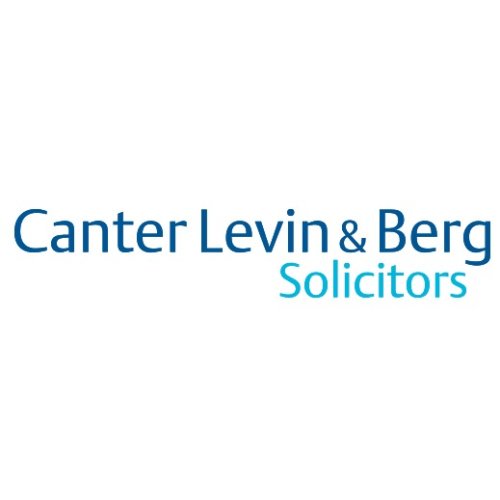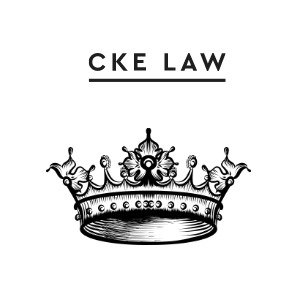Best Intellectual Property Lawyers in United Kingdom
Share your needs with us, get contacted by law firms.
Free. Takes 2 min.
Or refine your search by selecting a city:
List of the best lawyers in United Kingdom
United Kingdom Intellectual Property Legal Questions answered by Lawyers
Browse our 1 legal question about Intellectual Property in United Kingdom and read the lawyer answers, or ask your own questions for free.
- A website published my thesis as their work
- I finished my master degree In 2013 and I found a writing service for students website that did minor changes to my thesis and published as their own in 2017
-
Lawyer answer by Δικηγορικό Γραφείο Ηλία Τζερεμέ - Ilias Tzeremes Law Office
According to Greek Intellectual Property Law, you shall claim a huge compensation, because only the author maintains the right to manage his/her thesis. Moreover, braking Copyright constitutes a felony, punishable with up to 15 years of imprisonment
Read full answer
About Intellectual Property Law in United Kingdom
Intellectual Property (IP) law in the United Kingdom governs the protection and enforcement of rights related to creative and inventive works. This includes patents, trademarks, copyrights, and designs. The aim of IP law is to protect the creators and owners of these rights by giving them exclusive control over the use of their creations. It is an evolving field that adapts to technological advancements and changes in the global market. The UK Intellectual Property Office (UKIPO) is the main body responsible for administering IP rights and regulations in the UK.
Why You May Need a Lawyer
There are several situations where you might require legal help with intellectual property in the UK:
- When registering your IP rights, such as a trademark or patent, to ensure proper protection.
- If you need to enforce your IP rights against infringement or counterfeit activities.
- When negotiating IP agreements or licensing contracts.
- If you are involved in IP disputes that could lead to litigation.
- In cases where you are exploiting, buying, or selling IP assets and require legal clarity.
- When needing strategic advice to manage your IP portfolio effectively.
Local Laws Overview
Key aspects of IP law in the UK include:
- Patents: These protect inventions and give the patent holder exclusive rights to use and commercialize the invention for up to 20 years.
- Trademarks: A sign capable of distinguishing the goods or services of one enterprise from those of other enterprises, trademarks can be renewed indefinitely, usually every 10 years, as long as they are being used.
- Copyright: Protects original works of authorship, such as literature, music, and art, typically for the lifetime of the author plus 70 years.
- Design Rights: Protects the appearance of a product and can last up to 25 years with renewals. Unregistered design rights are also available for shorter periods.
Frequently Asked Questions
What is the role of the UK Intellectual Property Office?
The UKIPO is the government body responsible for IP rights in the UK. It manages IP registrations, provides guidance on IP issues, and offers tools to help protect IP rights.
How can I protect my invention in the UK?
To protect an invention, you must apply for a patent through the UKIPO or the European Patent Office. The process involves proving the invention's novelty and industrial applicability.
What constitutes trademark infringement?
Trademark infringement occurs when a party uses a sign identical or similar to a registered trademark in a way that could confuse consumers about the origin of goods or services.
How long does copyright protection last?
Copyright protection in the UK generally lasts for the lifetime of the creator plus 70 years, but this can vary depending on the type of work.
Can I sell my IP rights?
Yes, IP rights can generally be sold or licensed to another party. Legal assistance is recommended to negotiate and draft the agreement properly.
What is a design right, and how does it differ from a patent?
A design right protects the appearance of a product, while a patent protects the functional and technical aspects of an invention.
How can I defend my IP rights in the UK?
If someone infringes on your IP rights, legal action can be taken. This typically involves sending a cease and desist letter, seeking mediation, or pursuing litigation.
What are unregistered design rights?
Unregistered design rights protect the shape and configuration of products for up to 10 years after they are first sold, but they provide less protection than registered designs.
Can an IP lawyer help with an IP audit?
Yes, an IP lawyer can conduct an IP audit to assess and manage your IP portfolio, helping to identify potential value and risks associated with your IP assets.
How does Brexit affect IP rights in the UK?
Brexit has led to changes in certain IP rules, especially regarding EU trademarks and designs. It's essential to consult experts to understand how these changes affect your IP assets.
Additional Resources
Here are some resources and organizations that can provide further assistance:
- UK Intellectual Property Office (UKIPO): Offers guidance, tools, and services for IP rights management.
- World Intellectual Property Organization (WIPO): Provides global IP information and guidance.
- Chartered Institute of Patent Attorneys (CIPA): Represents patent attorneys and offers resources for IP matters.
- Institute of Trade Mark Attorneys (ITMA): Offers resources and support related to trademark law.
Next Steps
If you need legal assistance with intellectual property in the UK, consider the following steps:
- Identify your specific IP needs and uncertainties.
- Research local IP lawyers or law firms specializing in intellectual property.
- Prepare and gather all relevant documents and information related to your IP issue.
- Consult with multiple lawyers to find one with the right experience and expertise.
- Discuss the scope of services, fees, and potential strategies with your chosen lawyer.
By taking these steps, you will be better prepared to safeguard your intellectual property effectively.
Lawzana helps you find the best lawyers and law firms in United Kingdom through a curated and pre-screened list of qualified legal professionals. Our platform offers rankings and detailed profiles of attorneys and law firms, allowing you to compare based on practice areas, including Intellectual Property, experience, and client feedback.
Each profile includes a description of the firm's areas of practice, client reviews, team members and partners, year of establishment, spoken languages, office locations, contact information, social media presence, and any published articles or resources. Most firms on our platform speak English and are experienced in both local and international legal matters.
Get a quote from top-rated law firms in United Kingdom — quickly, securely, and without unnecessary hassle.
Disclaimer:
The information provided on this page is for general informational purposes only and does not constitute legal advice. While we strive to ensure the accuracy and relevance of the content, legal information may change over time, and interpretations of the law can vary. You should always consult with a qualified legal professional for advice specific to your situation.
We disclaim all liability for actions taken or not taken based on the content of this page. If you believe any information is incorrect or outdated, please contact us, and we will review and update it where appropriate.
Browse intellectual property law firms by service in United Kingdom
United Kingdom Attorneys in related practice areas.
Browse intellectual property law firms by city in United Kingdom
Refine your search by selecting a city.

















